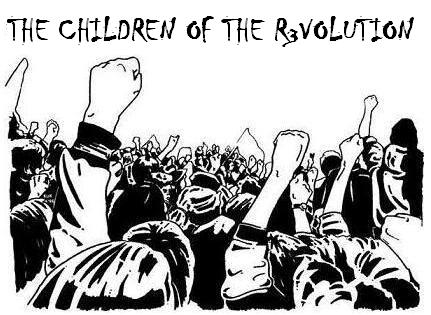BY LUSCUS
 "We are not afraid of anything, including the prospect of a new Cold War." These words, uttered today by Russian President Dmitry Medvedev, are but simple truth. Russia is not afraid of a new cold war, and is posturing so that the blame falls on the West if (or, more likely, when) this becomes reality.
"We are not afraid of anything, including the prospect of a new Cold War." These words, uttered today by Russian President Dmitry Medvedev, are but simple truth. Russia is not afraid of a new cold war, and is posturing so that the blame falls on the West if (or, more likely, when) this becomes reality.
Strategically, it is well placed. A new Cold War will not look like the old one, but rather become a deeper, richer creature. With Russia reaping energy windfalls, successfully splitting up European countries in negotiating with them (see Germany and Poland), no working or real cyberterrorism treaties, and the United States Army overcommitted in its current operational theaters (let alone strategic posturing with China), the old bear is in a pretty good spot. Economic and Information warfare will be the new theaters, and International society will start to really strain under the weight of outdated World War II-era organizations.
The biggest disagreement (all of this being proxy battles over the main question) is whether a state's sovereignty is absolute, or limited. US entry into Yugoslavia broke the existing norms which preserved a state's boundaries as absolute, enforcing a settlement on what had been a sovereign entity. Single-handedly bringing Kosovo into the international community set a dangerous precedent, one which Russia is intent upon rubbing in the West's noses. Russia's main interests are whether it can merge with Belarus to form a new state, and whether Chechnya or Ossetia/Abkhazia provides the rule of secession. China's interests align with Russia's here, with Tibet and Taiwan being the most obvious examples, but the Uighur provinces in the northwest equally valid (not to mention providing an interesting Muslim complication).
Europe is the big player here. Whether it votes to continue expansion and (more importantly) consolidation of power into a federal structure not unlike the United States Constitutional model will shore up the major players. If the EU succeeds, look for more unified negotiations with Russia (but also concessions, due to energy needs). If it fails, look to Russia continuing to meddle in European affairs, further poisoning the European experiment.
America, on the other hand, is fundamentally unprepared for this new Cold War. Unable to match Russia's proxy brinkmanship with a legitimate military threat (boots on the ground - nuclear war between great powers is still unlikely), it will lose face and prestige throughout the world. Economically, the US is very fragile, and losing opportunities to build and strengthen economic and diplomatic relationships with countries all too willing to work with Russia or China (and for fewer political concessions). America does not have the power to protect its allies from internet attacks, or itself from the disruption of its satellites.
This will not necessarily lead to World War III, but much as Athens saw its allies move under the protection of Sparta during the Peloponnesian War, there will be a restructuring of the world order. Where goes Europe, so goes the world.
 "We are not afraid of anything, including the prospect of a new Cold War." These words, uttered today by Russian President Dmitry Medvedev, are but simple truth. Russia is not afraid of a new cold war, and is posturing so that the blame falls on the West if (or, more likely, when) this becomes reality.
"We are not afraid of anything, including the prospect of a new Cold War." These words, uttered today by Russian President Dmitry Medvedev, are but simple truth. Russia is not afraid of a new cold war, and is posturing so that the blame falls on the West if (or, more likely, when) this becomes reality.Strategically, it is well placed. A new Cold War will not look like the old one, but rather become a deeper, richer creature. With Russia reaping energy windfalls, successfully splitting up European countries in negotiating with them (see Germany and Poland), no working or real cyberterrorism treaties, and the United States Army overcommitted in its current operational theaters (let alone strategic posturing with China), the old bear is in a pretty good spot. Economic and Information warfare will be the new theaters, and International society will start to really strain under the weight of outdated World War II-era organizations.
The biggest disagreement (all of this being proxy battles over the main question) is whether a state's sovereignty is absolute, or limited. US entry into Yugoslavia broke the existing norms which preserved a state's boundaries as absolute, enforcing a settlement on what had been a sovereign entity. Single-handedly bringing Kosovo into the international community set a dangerous precedent, one which Russia is intent upon rubbing in the West's noses. Russia's main interests are whether it can merge with Belarus to form a new state, and whether Chechnya or Ossetia/Abkhazia provides the rule of secession. China's interests align with Russia's here, with Tibet and Taiwan being the most obvious examples, but the Uighur provinces in the northwest equally valid (not to mention providing an interesting Muslim complication).
Europe is the big player here. Whether it votes to continue expansion and (more importantly) consolidation of power into a federal structure not unlike the United States Constitutional model will shore up the major players. If the EU succeeds, look for more unified negotiations with Russia (but also concessions, due to energy needs). If it fails, look to Russia continuing to meddle in European affairs, further poisoning the European experiment.
America, on the other hand, is fundamentally unprepared for this new Cold War. Unable to match Russia's proxy brinkmanship with a legitimate military threat (boots on the ground - nuclear war between great powers is still unlikely), it will lose face and prestige throughout the world. Economically, the US is very fragile, and losing opportunities to build and strengthen economic and diplomatic relationships with countries all too willing to work with Russia or China (and for fewer political concessions). America does not have the power to protect its allies from internet attacks, or itself from the disruption of its satellites.
This will not necessarily lead to World War III, but much as Athens saw its allies move under the protection of Sparta during the Peloponnesian War, there will be a restructuring of the world order. Where goes Europe, so goes the world.







3 comments:
I agree 100%. About the only "advantage" the US has going for it right now is it's willingness to confront the Russian threat (unless of course we see an Obama victory in November). Our recent missile commitment to Poland is at the very least a token gesture that we aren't going to roll over, and that buys us some time but pulls us still further into the conflict. We're desperately groping for some leverage right now, and I fear that, not finding any, we'll just end up selling out our Eastern Bloc allies when the game comes to a close.
How odd that the Hariolor, of all people, finds it so singularly impossible to get excited about this Russian nonsense. The reality, it seems to me, is that Russia is far from a legitimate threat - their military is still subpar by NATO standards, and their stranglehold on the former Bloc states is mildly perturbing at worst. Russia really has little to gain but pride, and everything to lose, by provoking NATO nations in an explicit way.
The only real concern I have with the situation is that it is a pragmatic demonstration of the fact that no developed nation on Earth is willing to go to war if they can possibly avoid it. That leaves China, India, Russia, and the rest of the developing world to push our buttons all day long.
But, like pesky eight year olds sitting at the big kids' table, we'll mostly just ignore them and complain unless they really make us mad, then the fight will be woefully one-sided.
Perhaps I am naive in my old age and refuse to accept that there is any actual strategic advantage to Russia for establishing an adversarial relationship with the US and our European allies. I likely overlook the power-hungry attitude of Putin and his pals. That being acknowledged, however, the numbers just don't jive for Russia to do more than pass token resolutions and push around some tin soldiers.
Were it not for natural gas and, to a lesser degree, oil, Russia would have no cards to play at all. And if they really provoked NATO, as I said, the fight would be one-sided in the extreme. First to go would be their pipelines, then their refining capacity, and down goes the bear like a poorly-made souffle. Indeed, Russia is expanding right now on the impetus of its own hot air, but short of using non-state agents to execute attacks against us on sovereign soil, there's not many cards for them to play.
I am fairly certain that when push comes to shove, Europe will tolerate higher energy costs in favor of living under the shadow of a new iron curtain.
One might remind Hariolor that Serbia in 1914 wasn't a legitimate threat either, but that similar brinkmanship brought Europe (and its colonies) to war.
That being said, I share several of his points. A conventional military war is unlikely, but more for the reason of MAD than any other. I also believe that there is no strategic advantage for striking an adversarial relationship with the US and Europe, but would argue that Russia doesn't see it that way - they view the actions of NATO and the US as strategic encirclement of their territory, and a slow but steady dismantling of the sovereign right of domestic jurisdiction (which they see as a protective right guaranteeing their existence) in favor of whatever decided by a 'coalition of the willing' or numerically arbitrary 'majority'. These are legitimate fears.
I am personally in favor of strategic engagement with Russia - with the goal of Russian entrance into NATO. This will require concessions in current US foreign policy (a VERY strict interpretation of 'humanitarian intervention', and one with emphasis on territorial integrity), but will eliminate many grey areas in international law (areas utilized by China to create a parallel but separate international system for their own gain).
The issue is no less than the legitimacy of the current international system. If legitimate, then to whom does it fall the responsibility of enforcement? If it is less legitimate, then what position does int'l society fall back upon? Or, is there one to fall back to? If it is illegitimate, are there punitive damages for actions undertaken?
Mr. Wheat is clearly on the side of enforcing a post-1990 Anglo-American system. I would also argue that an Obama administration wouldn't shrink from confrontation with Russia - in fact, I'd argue that he'd go too far.
Post a Comment